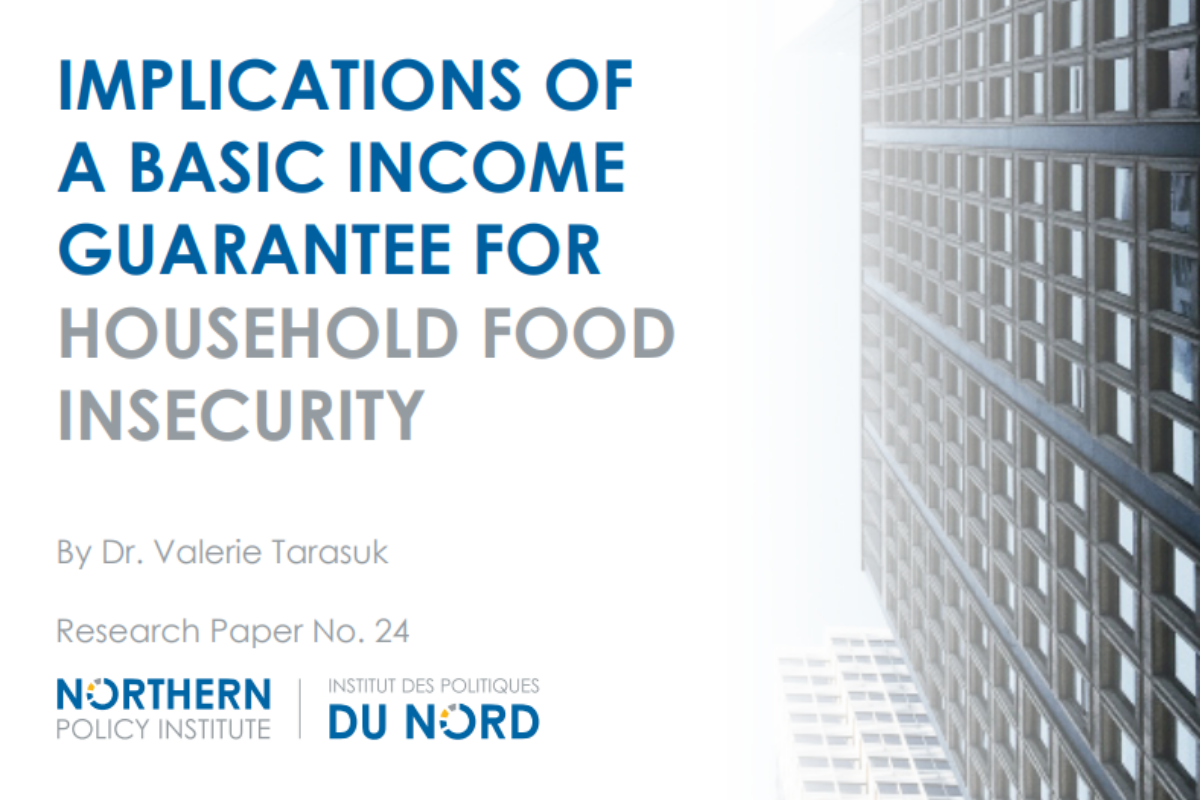Implications of a Basic Income Guarantee for Household Food Insecurity
June 17, 2017
How to cite: Tarasuk, Valerie (2017). Implications of a Basic Income Guarantee for Household Food Insecurity. Research Paper 24. Thunder Bay: Northern Policy Institute. Retrieved from https://proof.utoronto.ca/
Press Release [Communiqué de Presse]:
New Report from NPI says Basic Income Guarantee is an Effective Strategy to Reduce Food Insecurity
June 15, 2017
THUNDER BAY, June 15, 2017 – Household food insecurity—the inadequate or insecure access to food due to financial constraints—affects almost one in eight households in Ontario. The latest report from Northern Policy Institute’s B.I.G. Series argues that a basic income guarantee would be an effective policy solution to reduce household food insecurity among those most vulnerable to this ongoing problem.
Implications of a Basic Income Guarantee for Household Food Insecurity by Valerie Tarasuk makes the case for a B.I.G. by contrasting it with alternative strategies, such as an increased minimum wage, more affordable housing, and public food support programs. She ultimately concludes that a universal intervention, like a B.I.G., would be much more effective in tackling the issue of food insecurity, than targeted policies that are piecemeal and limiting at best.
Tarasuk explains, “Problems of food insecurity are not limited to any single population subgroup defined by household structure, main income sources, or some other socio-demographic characteristic – the only common denominator is inadequate, insecure incomes.” She continues, “A major advantage of a B.I.G. over policy initiatives tailored to specific population subgroups such as seniors, social assistance recipients, working families, or youth, is that a B.I.G. can reach all individuals and households who are vulnerable to food insecurity by virtue of inadequate, insecure incomes,” states Tarasuk.
The report also addresses the issue of provincial health care spending related to food insecurity, citing research that shows total health care costs of adults in severely food insecure households were 76 percent higher than the costs for adults in food secure households. It argues that addressing food security is critical to improve health outcomes for Ontarians.
This paper is the third of a series that explores the various topics presented at NPI’s Basic Income Guarantee conference in October, 2016. Report topics include food insecurity issues, potential models for a B.I.G. pilot, tax implications, and the potential impact on social innovators and First Nations.
To read the full report, visit www.northernpolicy.ca. To view presentations from the NPI’s BIG conference and explore comments and feedback from participants, visit www.northernpolicy.ca/big
Media Interviews: Author Valerie Tarasuk, and NPI President & CEO, Charles Cirtwill are both available for comment.

